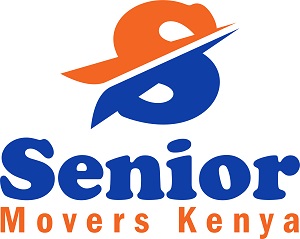Moving to a new home can be an exciting adventure, but it’s also a process fraught with numerous expenses that can catch you off guard if you’re not prepared. While most people are aware of the basic costs associated with hiring a moving company, such as transportation and labor, there’s a myriad of additional charges that can quickly add up. In this comprehensive guide, we’ll delve into the various extra charges involved in moving, from packing services to TV mounting costs, and provide you with practical tips for managing these expenses.
Introduction
Moving is a significant life event that requires careful planning and budgeting. Beyond the obvious expenses like hiring a moving truck and purchasing packing materials, there are many hidden costs that can catch even the most organized individuals off guard. Understanding and preparing for these extra charges is essential to ensuring a smooth and stress-free moving experience.
Specialty Items Handling
- Fragile or oversized items may incur additional charges for special handling.
- Negotiating with moving companies or considering alternative transportation methods can help reduce these costs.
D. Insurance
- Basic coverage provided by moving companies may not be sufficient to protect your belongings.
- Understanding insurance options and their associated costs is crucial for ensuring adequate coverage during the move.
III. Hidden Costs
A. Fuel Surcharges
- Fluctuating fuel prices can result in unexpected surcharges added to your moving bill.
- It’s essential to inquire about fuel-related fees when obtaining quotes from moving companies.
B. Accessorial Charges
- Special services such as shuttle trucks or hoisting may incur additional fees.
- Assessing your unique moving needs and communicating them clearly with the moving company can help avoid unnecessary charges.
C. Cancellation or Rescheduling Fees
- Changes to your moving dates may result in penalties or fees.
- Understanding the cancellation and rescheduling policies of your moving company can help you plan accordingly.
IV. Factors Influencing Extra Charges
A. Distance
- Long-distance moves typically incur higher costs due to increased fuel and labor expenses.
- Local moves may still involve extra charges, depending on the specific services required.
B. Time of Year
- Peak moving seasons often result in higher demand for moving services and increased prices.
- Planning your move during off-peak times can potentially save you money on extra charges.
C. Volume and Weight
- The amount of belongings you’re moving directly impacts the cost.
- Downsizing and decluttering before the move can help reduce expenses associated with volume and weight.
V. Additional Services and Costs
A. TV Mounting Costs
- Professional TV mounting services may be necessary after the move.
- Understanding the factors that influence pricing can help you budget accordingly.
B. DSTV Installation Cost
- Installing DSTV satellite service may incur additional charges.
- Exploring bundling options or standalone installation services can help you find the most cost-effective solution.
C. Move-in Cleaning
- Hiring a professional cleaning service for your new home may be necessary.
- Budgeting for move-in cleaning costs can ensure a fresh start in your new space.
D. Extra Assembly
- Assembling furniture or equipment beyond standard services may come with added fees.
- Assessing your assembly needs and communicating them with the moving company can help avoid surprises.
E. Electrical and Plumbing Services
- Addressing electrical or plumbing needs during the move may require additional expenses.
- Planning ahead and coordinating with professionals can help streamline these services.
VI. Tips for Managing Extra Charges
A. Obtain Multiple Quotes
- Comparing quotes from different moving companies can help you identify the most cost-effective option.
- Look for transparent pricing structures and inquire about potential extra charges upfront.
B. Negotiation Strategies
- Don’t hesitate to negotiate with moving companies to secure a better deal.
- Providing competing quotes or bundling services can strengthen your bargaining position.
C. Read the Fine Print
- Carefully review contracts and estimates to understand all terms and potential fees.
- Asking questions and seeking clarification can help prevent misunderstandings and unexpected charges.
VII. Conclusion
Moving involves more than just packing boxes and loading a truck; it’s a complex process with numerous expenses that can quickly add up. By understanding the full spectrum of costs involved, from packing services to TV mounting fees, and implementing practical strategies for managing these expenses, you can navigate your move with confidence and financial peace of mind. Remember to plan ahead, budget accordingly, and communicate effectively with your moving company to ensure a smooth and successful transition to your new home.
